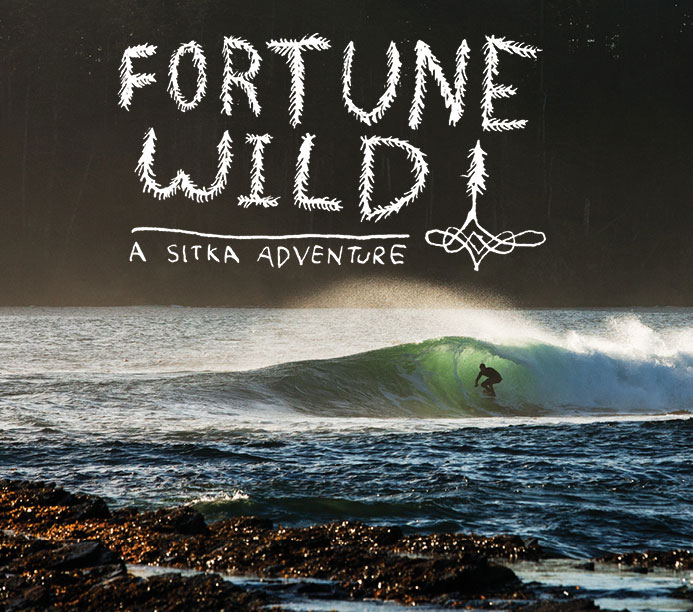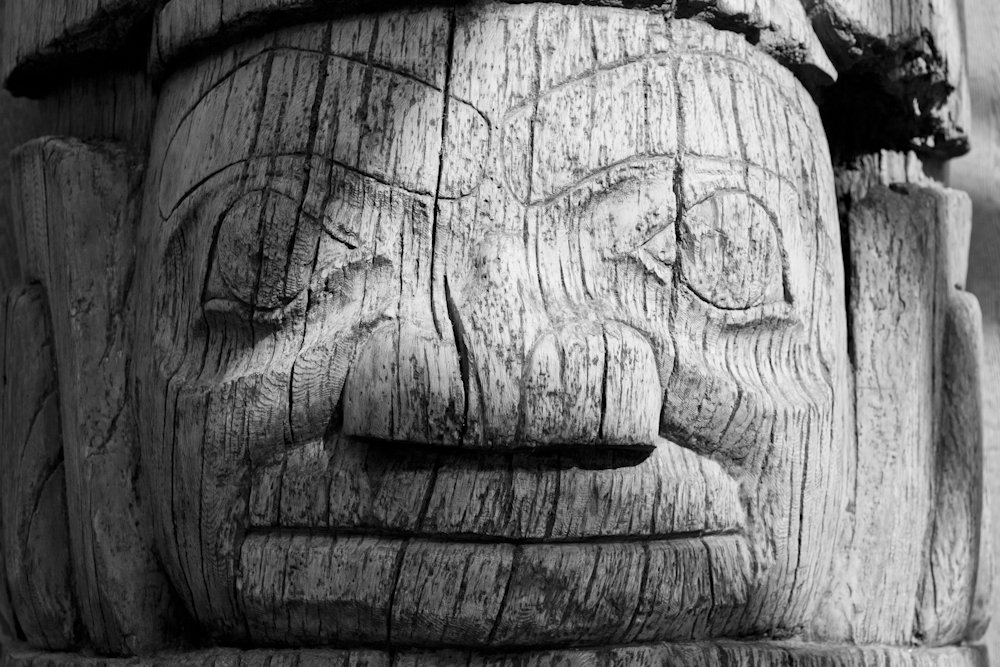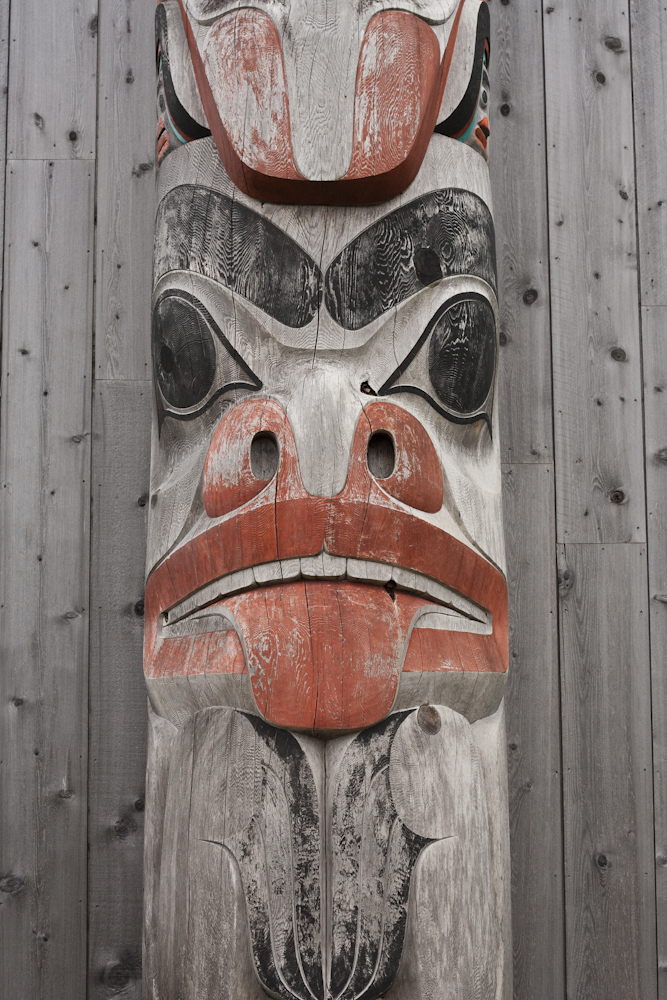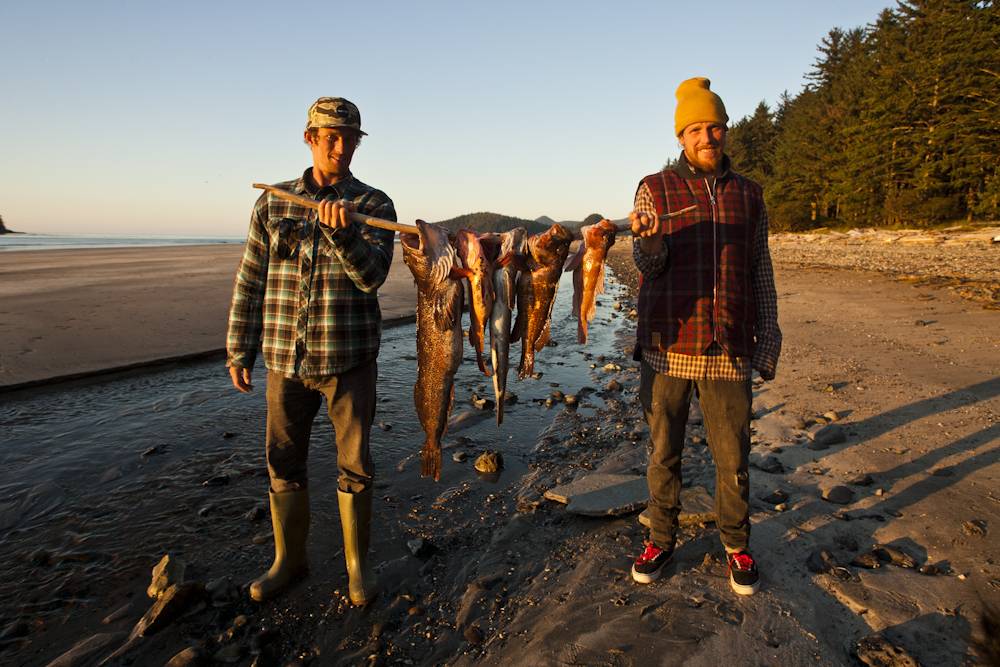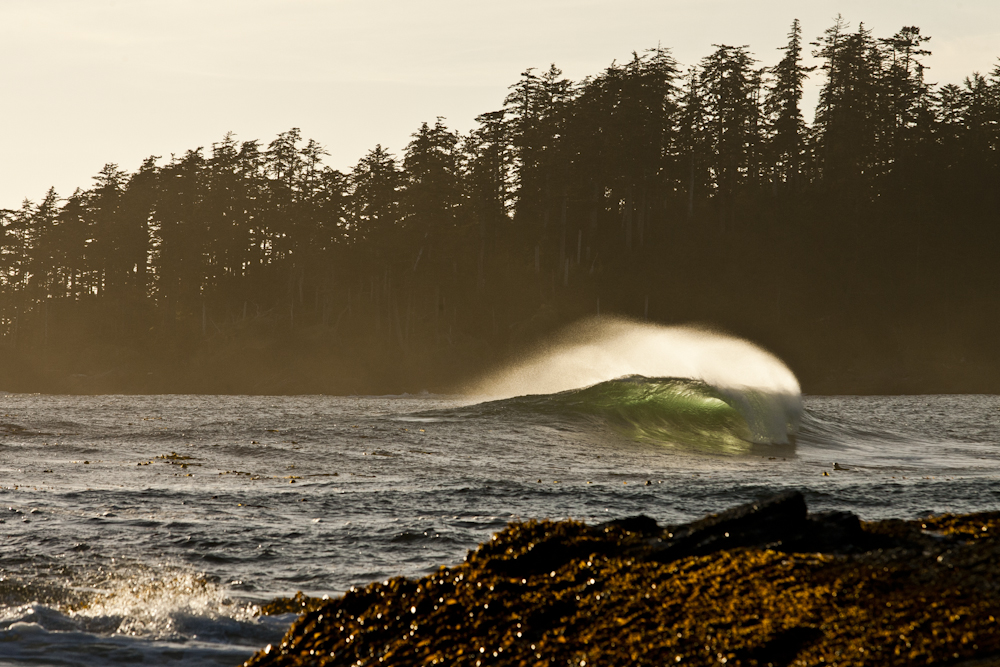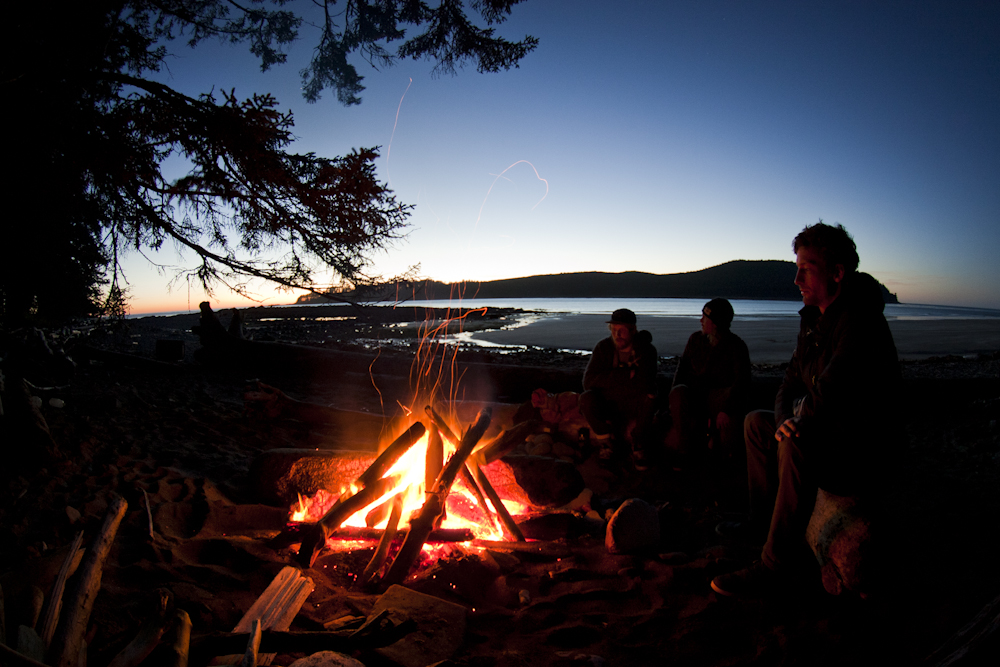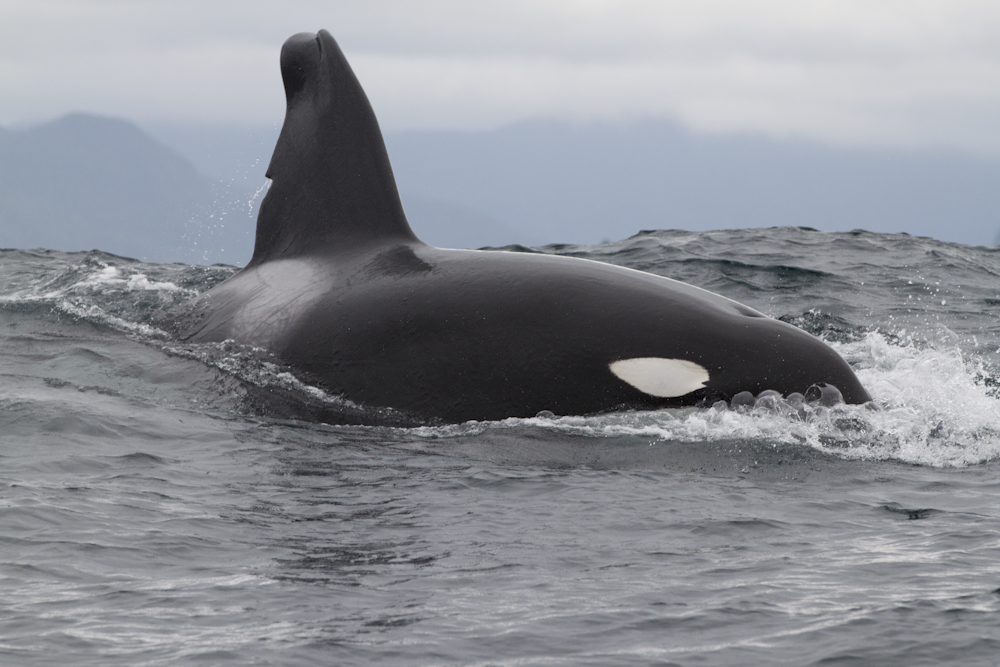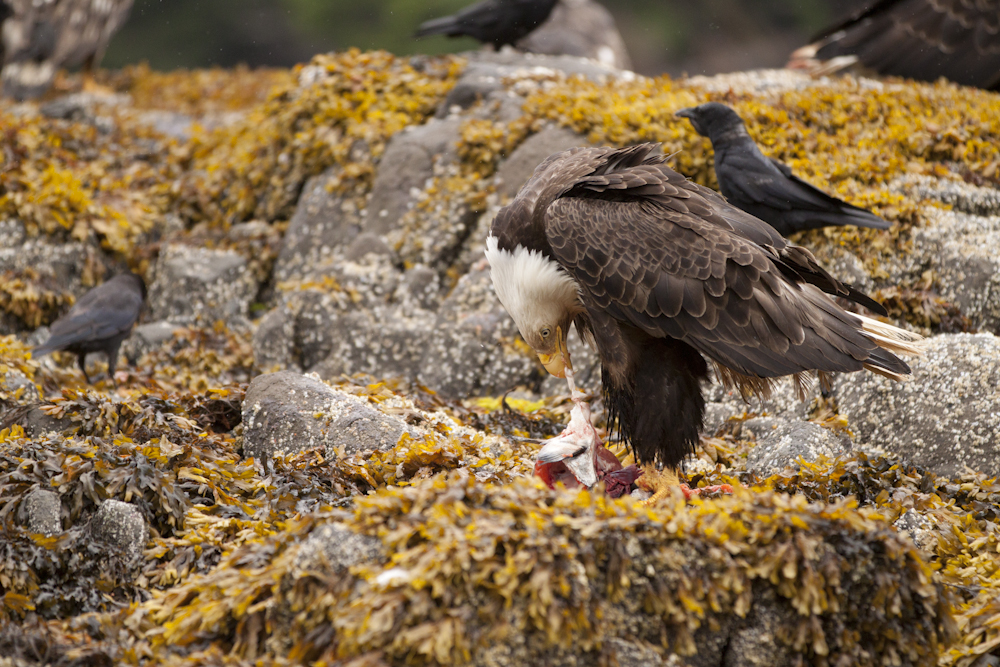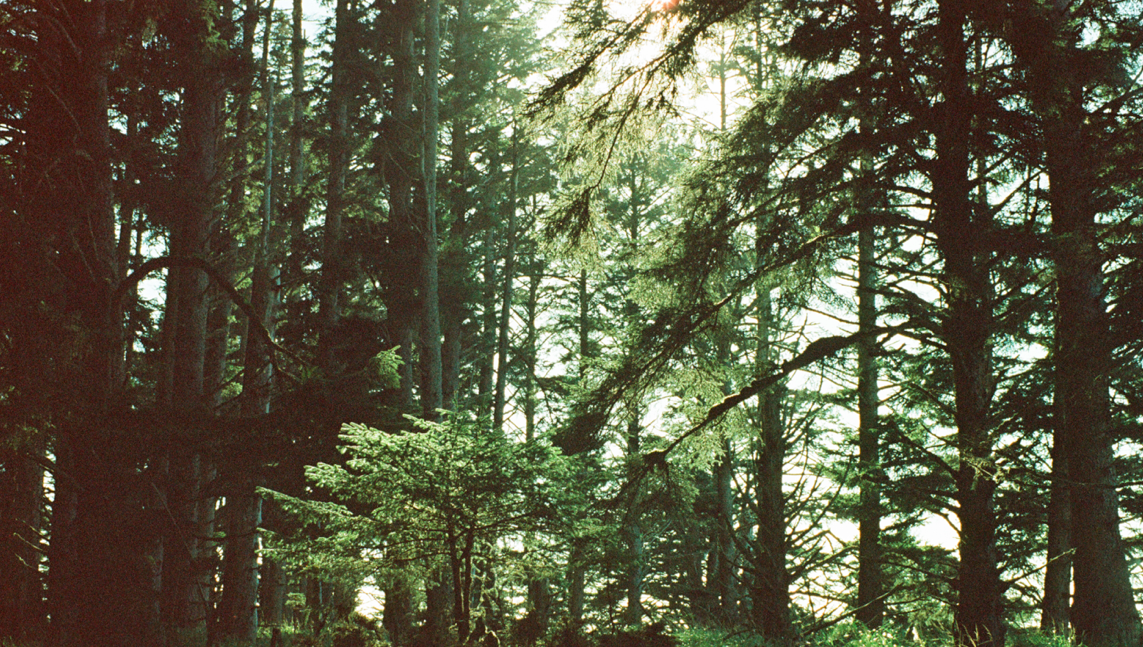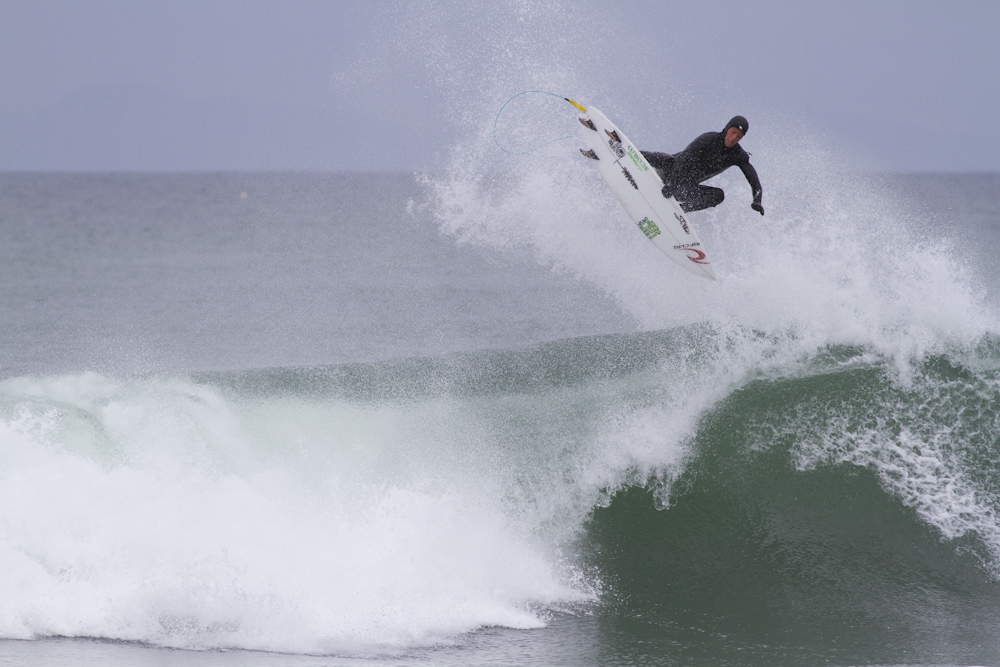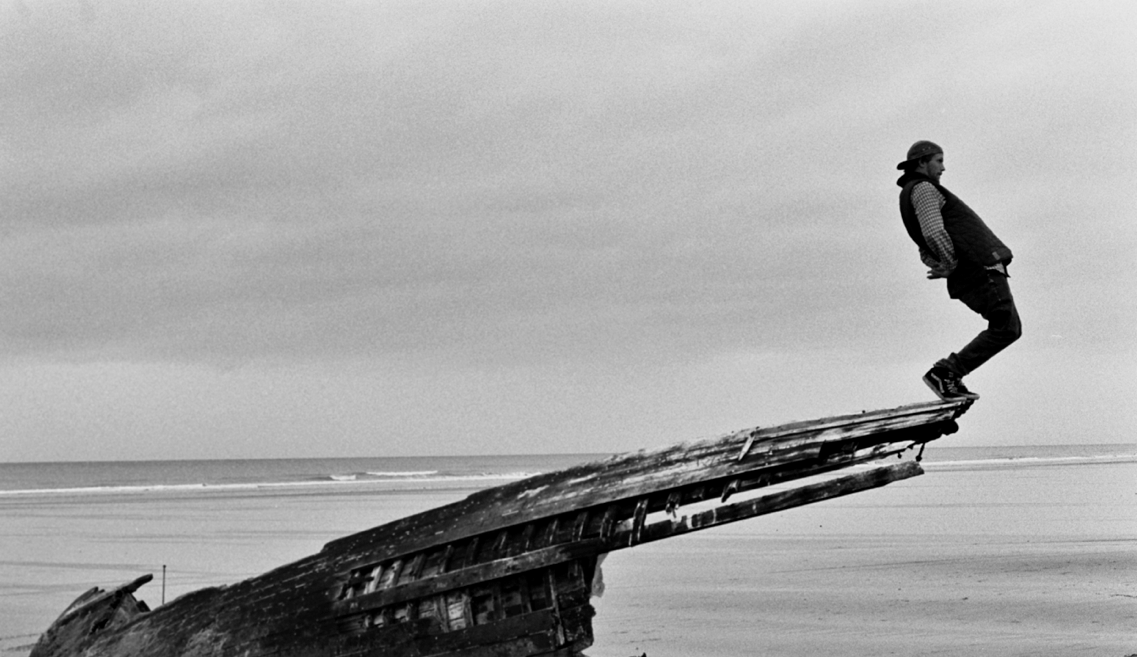Fortune Wild
Stay Wild
Fortune Found
A Sitka Adventure
Words by Malcolm Johnson and Reid & Arran Jackson
Photos by Kyler Vos and Rene Gauthier
Some time in the Long Ago, on the narrow spit that marks the northeastern tip of Haida Gwaii,
Raven happened on a clamshell half-buried in a heap of kelp. There were strange noises coming from the shell, so he pulled it free with his beak and leaned in for a closer look. Raven found that the clamshell was filled with tiny, chattering creatures, hiding in fright from the loud rush of the waves and the bright glare of the springtime sun.
Those tiny creatures were the first humans, and the late Haida artist Bill Reid completes the story:
“So the Raven leaned his great head close to the shell, and with the smooth trickster’s tongue that had got him out of so many mis-adventures in his troubled and troublesome existence, he coaxed and cajoled and coerced the little creatures to come out and play in his wonderful, shiny new world.”
On this chain of islands far off the coast of British Columbia, the humans and the wilder things have been living in something close to harmony ever since. The traditional homeland of the Haida people, the archipelago formerly known as the Queen Charlotte Islands remains a stronghold of proud indigenous culture and profound natural beauty. It also happens to be loaded with surf potential – hollow beachbreaks, meandering rivermouth rights, and, if myths are to be believed, a few deepwater reefs that can hold waves
as tall as the ancient trees that line the shore.
Last year, an adventuresome crew that included Peter Devries, Noah Cohen, and brothers Reid and Arran Jackson set off into a rarely surfed area of Haida Gwaii to start filming The Fortune Wild. A Sitka Films production directed by Ben Gulliver, it’s a plucky little story about surfing the farthest corners of the Pacific Northwest – and about exploring and preserving this shiny new world that Raven welcomed us into so long ago.
I can’t imagine what life would’ve been like had I not spent my formative years near the ocean and discovered surfing at a young age. Every surfer dreams of solo sessions in perfect waves, and for those of us living in the Pacific Northwest those sessions can be found closer to home than one might imagine. – Reid
Growing up on Vancouver Island with an active family, many of our weekends were spent touring around in kayaks or going biking or hiking. Sea kayaking was a huge inspiration and introduction to the ways of the ocean. But when Reid and I started surfing, our parents compromised and let us tow our boards behind the boats so we could enjoy the new beaches we discovered wherever we went. – Arran
The Sitka trip to Haida Gwaii had been a dream of ours for years, and we finally decided it was time to make it happen. Some research had us stumbling on an oasis screaming with surf potential, and after a lot of dreaming and scheming, emails and phone calls, plane rides and boat rides, we actually pulled it off.
When we arrived, we spent three days on Graham Island, the largest island in the archipelago. It was our last chance to gather camping essentials and complete our mountainous packs. Standing on the beach, we looked at the trees surrounding us and knew those were the same trees the first explorers saw when they arrived.
The last evening before taking off, we spent a little time running errands in town. By the time we were ready to go, the sun had set and the wind and rain had come up. I was standing barefoot in my shorts with the wet and cold hitting my face and muck between my toes. We were about to paddle our fully loaded canoe through the blinding wind and darkness to an island off of an island. I turned to face our destination and howl into the night. The adventure had only just begun, and I felt ready for anything. – Reid
For months, we’d been studying maps and trying to imagine what it would be like. As we approached our campsite, the visions I had in my mind started to take shape before my eyes. We rounded the sandbar to see little wedges peeling down the beach, and then it took some time to figure out where to land and pull our gear to shore.
Once we were on the beach, the boys were freaking out. Ben Gulliver and Kyler Vos were fumbling with their camera gear, Pete was running down the beach to check the bar and the rest of us were getting dizzy from trying to decide where to set up camp while still peeking out from the trees to call out good sets to each other.
We were like kids in a candy shop. I took a step back to absorb all that was happening around me with a shit-eating grin plastered to my face like pre-pubescent acne. It was sensory overload. – Arran
While the waves were flat, we enjoyed some of the other activities our little piece of coast had to offer. Fishing, hiking, foraging, and relaxing in homemade saunas were our go-to pursuits. But the timing of the trip had also brought a ton of garbage to the shores from the tsunami in Japan, as well as from the normal marine debris. We fashioned the waste we collected into sports equipment like basketball nets and hockey sticks to stay active. Exploring our surroundings around camp was an endless adventure – many moons ago, our temporary home was likely a summer fishing camp, but it had been centuries since it had been left to the wild and months, if not years, since humans had last been there.
We felt lucky to be able to roam free with only the deer watching as we played. Hundreds of years earlier, Haida people were making a life there; some years after that, European settlers may have been plying the local waters. But that week, we had that wild coast to ourselves to feed on and play on. – Reid
When you put all your effort into planning and imagining a place, then have that dream become reality, that is one true sense of human happiness. – Arran
More at sitka.ca
The Fortune Wild - Trailer from Sitka on Vimeo.
